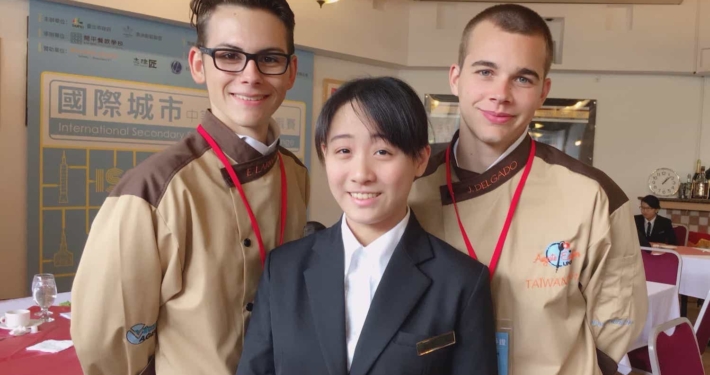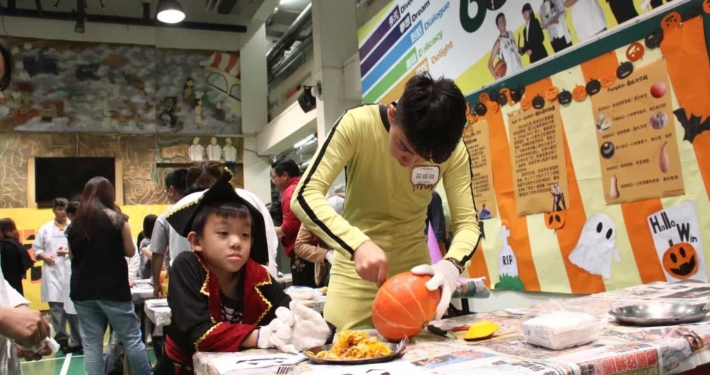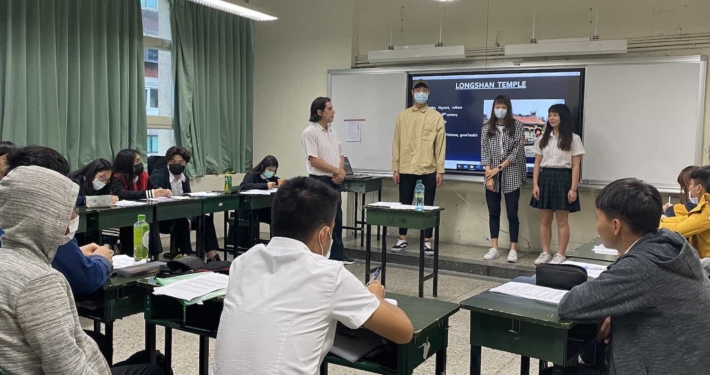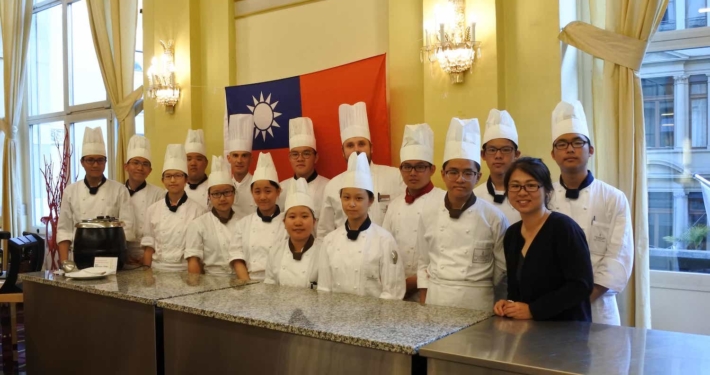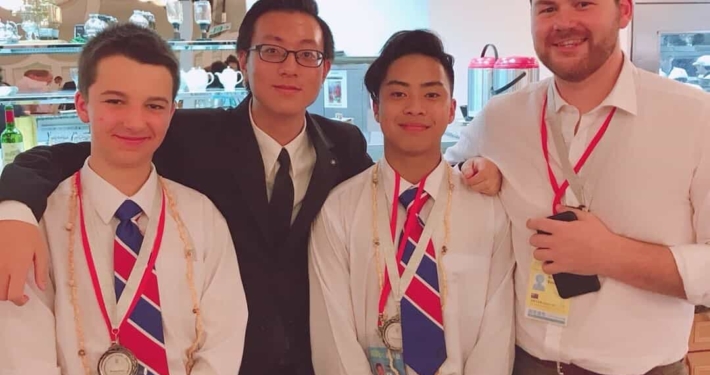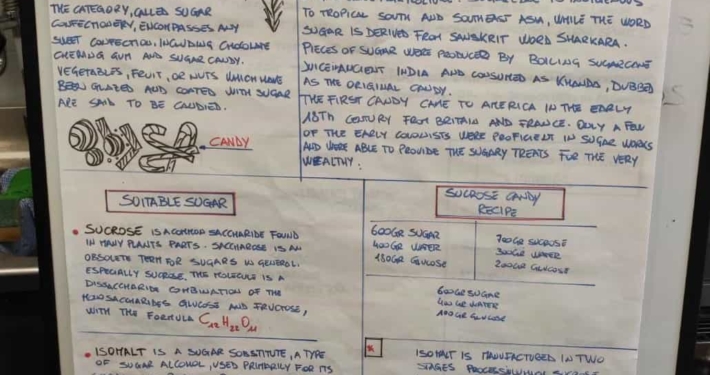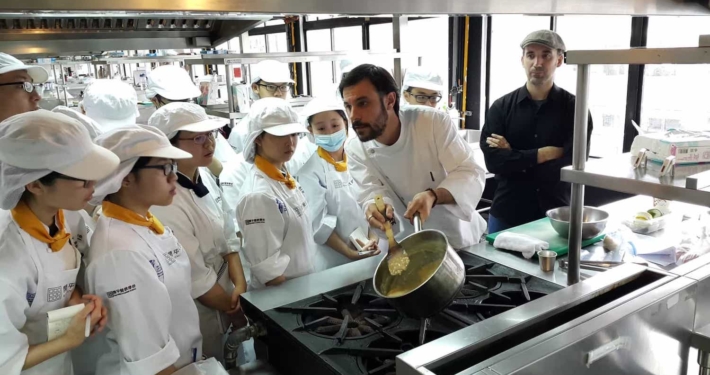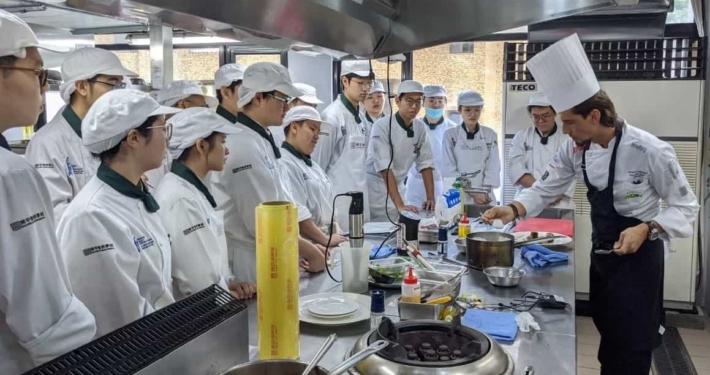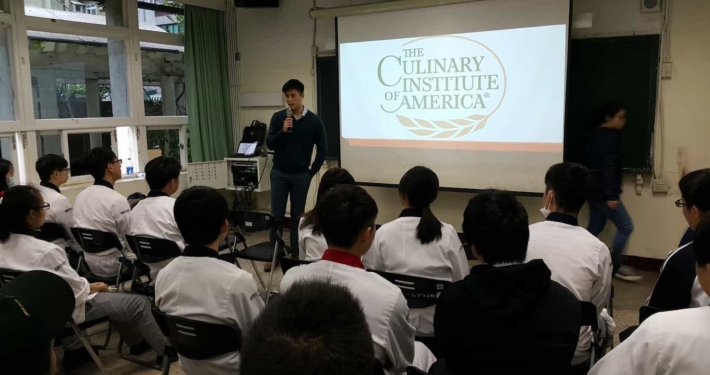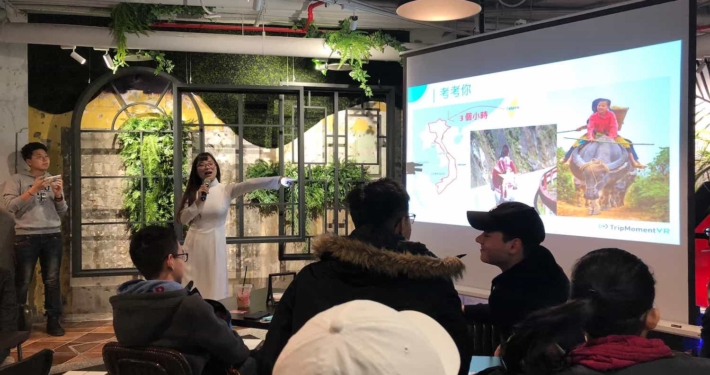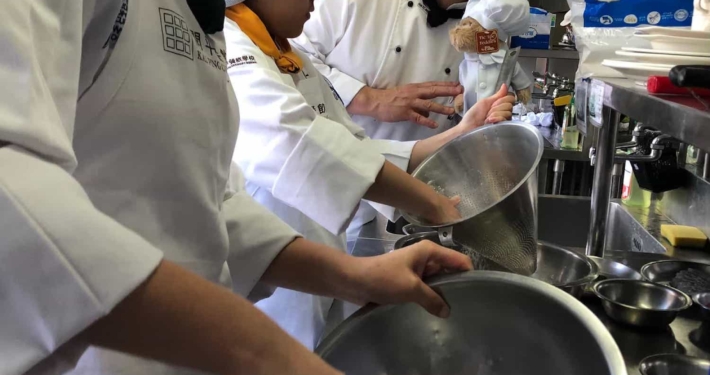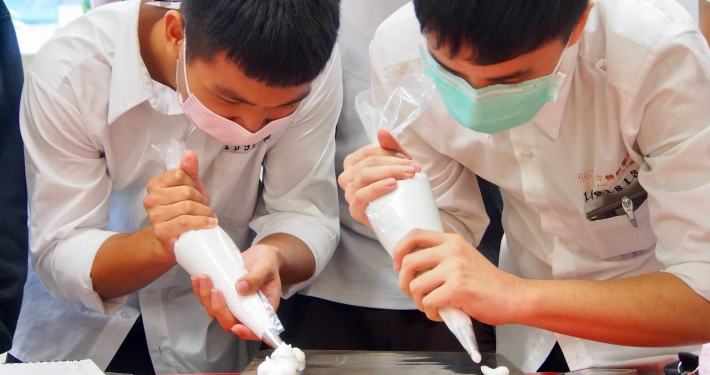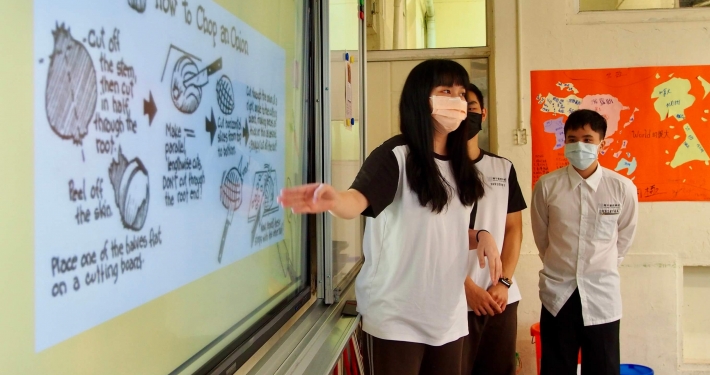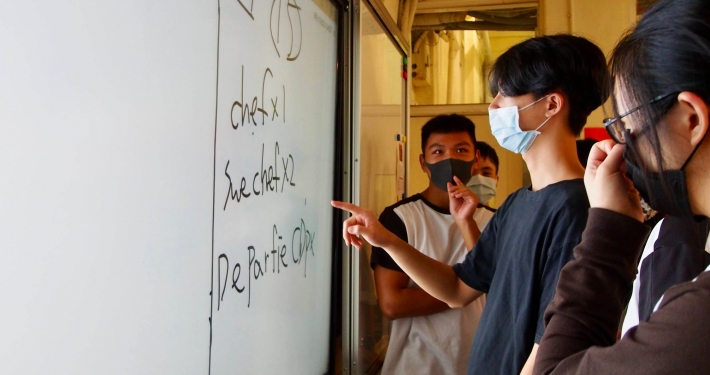International Bridge Program (IBP)
The Bridge to world culinary education
Expand your world with a global perspective
Core of Bilingual Education:
Embracing Local Cultural Heritage and Global Perspective & Nurturing World Citizens with Global Mobility Capabilities
Highlights of the international culinary high school program.
Situational Language Teaching
Five major themes in hospitality and tourism are planned allowing students to apply English in simulated scenarios, and incorporates university-level teaching resources for career exploration. Students engage in practical environments such as kitchens, restaurants, hotels, and aviation settings, receiving instruction entirely in English. This approach trains students to naturally apply their skills in relevant contexts.
Self-identity and International Perspective
The curriculum unfolds like concentric circles, starting from enhancing local identity to integrating the United Nations Sustainable Development Goals (SDGs), developing cultural exchange programs with international sister schools, and hosting quarterly symposiums on global issues. This approach deepens local and international ties, nurturing students to become global talents with cross-cultural communication skills and competences.
Career Planning Seminars
International successful professionals from various fields are invited to share their experiences, enabling students to learn from the giants and expand their international networks through curriculum exchanges. The seminar themes align with the core curriculum, divided into four major topics: career development, local culture, international perspective, and culinary trends, thereby strengthening students’ global literacy.
Culinary STEAM Course
This course utilizes bilingual instruction to explore the science behind cooking, connecting to the interdisciplinary and hands-on spirit of STEAM education. It includes the development of online courses and the creation of bilingual flipped classrooms. Additionally, students have the opportunity to obtain international ServSafe certification (one of the top three global food safety systems) during their high school years.
Study Abroad
In the third year, a four-week study abroad program is scheduled, allowing students to take classes with university students from abroad to polish their foreign language skills and broaden their international culinary perspective. Additionally, an overseas internship is included, providing insight into international culinary demands and training in teamwork, independent thinking, and problem-solving skills.
Situational Language Teaching
Five major themes in hospitality and tourism are planned allowing students to apply English in simulated scenarios, and incorporates university-level teaching resources for career exploration. Students engage in practical environments such as kitchens, restaurants, hotels, and aviation settings, receiving instruction entirely in English. This approach trains students to naturally apply their skills in relevant contexts.
Self-identity and International Perspective
The curriculum unfolds like concentric circles, starting from enhancing local identity to integrating the United Nations Sustainable Development Goals (SDGs), developing cultural exchange programs with international sister schools, and hosting quarterly symposiums on global issues. This approach deepens local and international ties, nurturing students to become global talents with cross-cultural communication skills and competences.
Career Planning Seminars
International successful professionals from various fields are invited to share their experiences, enabling students to learn from the giants and expand their international networks through curriculum exchanges. The seminar themes align with the core curriculum, divided into four major topics: career development, local culture, international perspective, and culinary trends, thereby strengthening students’ global literacy.
Culinary STEAM Course
This course utilizes bilingual instruction to explore the science behind cooking, connecting to the interdisciplinary and hands-on spirit of STEAM education. It includes the development of online courses and the creation of bilingual flipped classrooms. Additionally, students have the opportunity to obtain international ServSafe certification (one of the top three global food safety systems) during their high school years.
Study Abroad
In the third year, a four-week study abroad program is scheduled, allowing students to take classes with university students from abroad to polish their foreign language skills and broaden their international culinary perspective. Additionally, an overseas internship is included, providing insight into international culinary demands and training in teamwork, independent thinking, and problem-solving skills.
Q&A about Kai-Ping’s International Culinary Department.
Does applying to the international section have an English language threshold? Can students with poor English still attend the international section?
The admission process for the international department primarily involves orientation sessions and suitability interviews. The suitability interview for students includes a culinary skills assessment, an English interview, and a written English test. The purpose of the interview is to assess the student’s English level and his motivation to learn. Once students’ learning motivation is strong, there should be an opportunity.
How are English classes conducted? What is the proportion of instruction in English?
English courses are taught entirely in English by foreign teachers and follow the CEFR standards for leveled instruction. This allows for differentiated teaching and feedback based on student proficiency, with a significant increase of 2 to 2.5 IELTS bands achievable within three years. Other academic courses adjust the proportion of English instruction according to grade level and student proficiency (40% in the first year, 60% in the second year, and 80% in the third year, with the proportion of English instruction increasing progressively by grade level). The international section emphasizes creating English immersion environments, providing practical settings for students to use English. In these situational English courses, students practice and apply English in various settings, such as kitchens, airplane cabins, and hotels, based on different themes.
What professional and technical certifications are available for graduates of the International Bridge Program?
Obtain both ServSafe & Worldchefs certification within the three-year IBP curriculum.
What do the international department’s specialized courses and activities include?
- Applied English (AE) Situational Courses: The program plans five major themes in the hospitality industry, allowing students to apply English in simulated scenarios. University-level teaching resources are introduced for career exploration, enabling students to practice English in real-life settings such as kitchens, restaurants, hotels, and airlines. The goal is to train students to naturally use English in relevant contexts through full English instruction.
- International Perspective: The curriculum expands like concentric circles, starting with enhancing local identity and integrating the United Nations’ Sustainable Development Goals (SDGs). It includes international sister school cultural exchange programs, aiming to develop students into global talents with cross-cultural communication and competitive skills.
- Elite Seminars: Each semester, several elite seminars are held, inviting successful individuals from various international fields to share their experiences. This allows students to learn from these “giants” and expand their international networks through course interactions.
- Study Tour Programs: These programs include an annual study course. In the first year, students participate in a cultural camp to foster self-identity. In the third year, a four-week overseas study tour is arranged, where students take courses with international university students, enhancing their language skills and expanding their international culinary perspectives. The program also includes overseas internships, helping students understand international culinary demands and training them in teamwork, independent thinking, and problem-solving skills.
What are the resources for studying abroad?
The Kai-Ping International Culinary Department maintains friendly cooperation with several top international culinary schools, such as Apicius Culinary Institute of Florence University in Italy, Lenôtre Pastry School in France, and EUHT STPOL at the University of Girona in Spain. They have established individualized career guidance systems to help students clarify their post-graduation aspirations and smoothly transition to studying abroad. In 2021, the International Department signed educational advancement projects with Apicius Culinary Institute of Florence University in Italy and EUHT STPOL at the University of Girona in Spain.
For other questions, please refer to the FAQ
The cooperating schools
The Bridge to World Culinary Education,
Expand your world with a global perspective!
-
Experience College Life
-
International Culinary Experience and Skills Proficiency
-
International Certification
-
Situational Language Teaching
-
Professional English Skills Training
-
Qualified Teachers
-
Mixed-age Class
-
Homeroom Teacher
-
Proactive Counseling
-
Nurturing Self-awareness and Connecting to the World
-
Diverse Learning & Multiple Assessments
-
Alpha Workshop
-
Skills Practice in all fields of Chinese & Western Cuisine, Bakery & Pastry, and F&B
-
Overseas Culinary Program & Global Culture Exploration.
-
Cultivation through Bilingual Education.
-
Small class sizes with a focus on individual learning differences and needs.
-
Global Mobility・Gaining Global Competitive Advantage.
-
Well-rounded culinary skills learning.
-
Bilingual Education for the Development of International Culinary Talent





